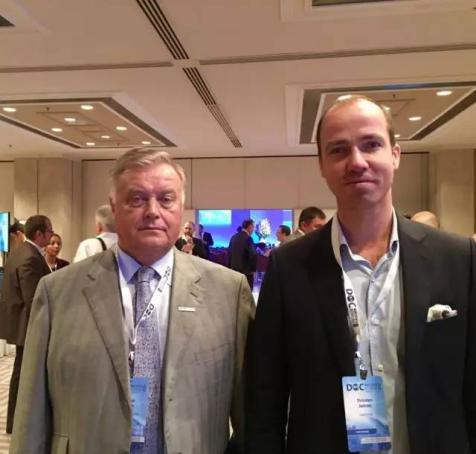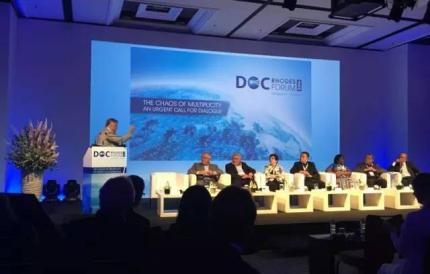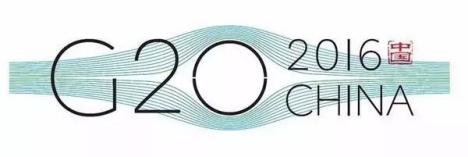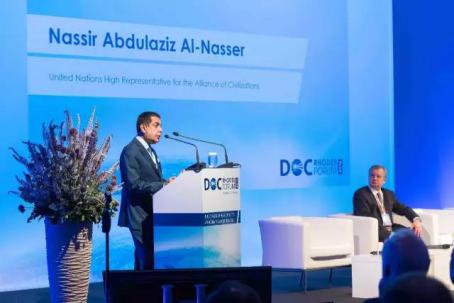I had the opportunity to participate in the annual meeting of the World Public Forum, which took place in Rhodes, Greece in October 2016. The World Public Forum (WPS) was chaired by Vladimir Yakunin, who is a Russian public figure and has been a close friend of President Vladimir Putin for many years. With his forum, which Mr. Yakunin established 12 years ago, he seeks to foster a “Dialogue between Civilizations” and to “search for solutions to help deescalate tensions across the world.” Among the participants were public figures, business representatives, and academics from Russia (primarily Eastern), Europe, China, and the United Nations. Rhodes was not a Russia-centric event, although one could sense a clearly non-Western perspective concerning today’s regional and global tensions. However, this event was quite a refreshing contrast to the annual meeting of the Clinton Global Initiative, which I attended only a few weeks earlier in New York.
The in-depth discussions in sunny Rhodes portrayed a rather dark picture of today’s economic and geopolitical affairs. It's certainly no news that Francis Fukuyama was wrong and Samuel Huntington right: we are not experiencing the “end of history” and “victory of Western democratic liberalism” but are increasingly facing a “clash of civilizations.” This is not only caused by economic inequality and power struggles but also cultural differences across borders and regions. Europe’s migration and refugee crisis epitomize this clash and occupied most of the discussions in Greece – which is where most refugees pass through when entering Europe.
 Thorsten Jelinek (right)& Vladimir Yakunin(left)
Thorsten Jelinek (right)& Vladimir Yakunin(left)
Today, there are roughly 7.5 billion people on our planet, of which 3% migrate across borders and 51 million people migrate involuntarily. This is the largest amount of forced displacement since World War II. Most of the forced migration takes place within the region, and 50% is within the MENA region alone. Of the current migration crisis mainly caused by the civil war in Syria, Iran took about 3 million refugees, Turkey 2.3 million, and Europe 1.3 million (of which most went to Germany). Hungary just held a referendum on the quota-based reallocation system proposed by the EU. Hungary was asked to provide a temporary home for a few hundred migrants, which the current government tried to refuse. But it’s not only Hungary; most of the Eastern European countries, such as Slovakia, the Czech Republic, and Romania, are hostile towards migrants, although the number of refugees in Europe is relatively low compared to the number of refugees in only Iran and Turkey. First and foremost, this crisis is a humanitarian crisis. In 2016, an estimated 3,740 migrants went dead or missing on their way to Europe. But the migration crisis also highlights the lack of unity within the European Union and people’s sense of uncertainty concerning the future.

Some see the Syrian conflict as the “final battle, ” which already started some 1,400 years ago (i.e., between Shia and Sunni), concerning the succession of the Prophet Muhammad. Others emphasize that the crisis is the result of the neo-colonial intervention by the West since the end of the First World War and the introduction of the nation state, artificial border demarcation, and successive integration into Western trade. The Head of the United Nations Alliance of Civilizations, Nassir Abdulaziz Al-Nasser, believes that the forging of dialogue and cooperation will galvanize action against extremism and defuse the tension between the Western and Islamic World. In the short and medium term, however, there will be ongoing military struggle, but a long-term solution must be based on education and economic development. Without Russia and the United States coming to terms, this proxy war won’t end soon.
The continuous rise of populism, the Ukrainian crisis, the refugee crisis, and a sluggish economy reveal Europe’s current lack of strategy and strategic thinking. European populists,not only in the Eastern European countries but also in Austria, Britain, Denmark, France, Germany, or the Netherlands, exploit the uncertainty and anxiety felt by many Europeans. According to the discussions in Rhodes, such anxiety is not unwarranted. Decades of peace and liberalism in Europe no longer seem sufficient political program for the political centre to hold.
Europe’s most important partner remains the United States, economically and geopolitically. EUR 2.7 billion are traded between both regions on a daily basis. Europe is also strongly culturally intertwined with the United States. Many young people still want to travel to the United States for education. Yet the relationship between Europe and the United States is asymmetric. The United States is expected to weaken socially and economically over the next decades but will remain, unlike Europe, a military power. The U.S. wants Germany in particular to take a bigger role in geopolitics, but Germany can only act as part of Europe. In the meantime, the U.S. itself seeks to strengthen its partnership in the Asia Pacific region due to China’s further economic and military growth.
 President of the Czech Republic-Zeman
President of the Czech Republic-Zeman
Over the next decades, Europe could further lose its geopolitical and economic strength, and not merely due to its aging population. As an answer to the slow economic growth, Europe’s political elite discuss the idea of a core and peripheral Europe (hence excluding countries such as Spain, Portugal, or Greece) and keeping only those countries that have comparable economic strength and can afford a common currency. Yet a core Europe risks even more to become geopolitically and economically insignificant. To succeed in a globalized world and become economically sandwiched by China and the United States, Europe can only prosper as one economic and political Bloc. Ironically, a core Europe could emerge much faster than expected but as one that is unwanted. In addition to the United Kingdom, there is the risk of further “exits, ”even of core European countries such as the Netherlands, France, or Denmark. The loss of the United Kingdom – should the government proceed with the exit, which seems rather likely with its prime minster, Theresa May – will cause great damage, since the United Kingdom has been the only country in Europe with a truly global outlook. For now, Europe already lost Russia and cannot afford to lose the United Kingdom, as the United Kingdom cannot really afford to lose Europe – but populism causes governments to make irrational decisions.

Russia’s military intervention in Crimea has unintentionally led to a revival and the strengthening of NATO. Even though the Baltic and Eastern Europe feel threatened by Russian aggression, Russia doesn’t seem to pose a real threat towards Europe. At the forum in Rhodes, there was the conviction that Russia has no plans to seriously threaten Europe or NATO. However, some forces within Russia seek to provoke a new Cold War. The escalation between Russia and the United States in the Syrian war and Russia’s search for a new identity in global geopolitics testify to the existence of such forces.
Although most European foreign ministers would publicly oppose the narrative that Europe has a significant stake in Russia’s recent development, although this view of Europe was the common conviction among the WPF participants. Until 2009, there were no signs of Russia’s recent development and aggression. In 2008, Dmitri Medvedev – the president at that time and Russia’s current prime minister – even proposed a plan for further European-Russian integration, but the plan was largely ignored by Europe. Instead, EU and NATO expansion were emphasized, leading to the escalation and war in Ukraine. Undoubtedly, Russia has its own large stake in the Ukrainian crisis, but Europe’s diplomacy has largely failed, including its democratic and civil rights campaigns.
China apparently does not have much stake in either the Middle East or Europe, but its continued growth also depends on global economic exchange and stability. China will equally suffer if today’s deglobalization trend further intensifies, as is currently the case in Europe and even in the United States. Also, China is very much aware of its role as a global power and is willing to take responsibility, as clearly demonstrated at this year’s G20 meeting, which took place in Hangzhou, Zhejiang Province. China will become the largest economy within the next decade and must take an active role in global governance. It must continue its internal and opening-up reform. At the G20, China has shown its ambition to become a balancing power between the high- and low-income world and that it actively wants to contribute to building a new global trade system based on fairness and rationality.

However, China’s rise can become its own obstacle. Internally, China faces tremendous challenges that it must resolve, including its lower economic growth, industrial overcapacities, domestic East-West income gap, looming middle-income trap, environmental degradation, lack of innovation, decreasing competitiveness due to increasing labor costs, and aging population. Externally, China has been excluded from the Trans-Pacific Partnership (TPP) agreement, and Europe is opposing China’s full market economic status, which is otherwise granted by the World Trade Organization. Some of China’s immediate neighbors clearly search for the proximity to the United States as their geopolitical guardian and preferred trade partner. China has already responded to such exclusion, primarily with its own bilateral trade agreements, the launch of the Asian Infrastructure Investment Bank (AIIB), and with its “One Belt, One Road” initiative, which can become a platform for tremendous infrastructure investments, trade, and growth for over 60 countries.
 United Nations High Representative for thr Alliance of Civilizations Nassir Abdulaziz Al-Nasser
United Nations High Representative for thr Alliance of Civilizations Nassir Abdulaziz Al-Nasser
Most participants agreed that the current global capitalist economy is not equipped to solve the global issues, to share prosperity equally, and to sustain a geopolitical balance. The world needs more development and less growth. The founding father of the liberal economy, Adam Smith, already cautioned about the negative effects of uncontrolled capitalism. It will threaten the integrity of society “unless government takes some pains to prevent it.” A new system is needed. For China, Russia, and many other G20 counties, a new system also means the departure from the old governance structure that were originally put in place by the U.S. after World War II. How the new structure might look – every so often – has remained unclear. But toward this end, China should aim to become a respected power as well as the strongest economic power. It must become a role model of the old Confucian proverb: “ensure that those who are near are pleased and those who are far are attracted” (近者悦,远者来, The Analects, XIII.16).
PROFILE
 Thorsten Jelinek
Thorsten Jelinek
Thorsten is the Managing Director of Poly Terra Innovation, a German R&D firm developing sustainable plastics and products from idea through to market readiness. He is also the Europe Director of the Taihe Institute, a nonprofit, independent, public-policy think tank based in Beijing. His professional work is based on his in-depth experience in the areas of business strategy and development, sustainability and international relations. Prior to his current role, Thorsten was an Associate Director at the World Economic Forum responsible for economic relations in Europe, and held various leadership roles in the industry. He holds a Ph.D. in political economy from the University of Cambridge and an M.Sc. in organizational psychology from the London School of Economics.
—————————————————————
FOCUS ON CONTEMPORARY NEEDS.
Should you have any questions, please contact us at public@taiheglobal.org